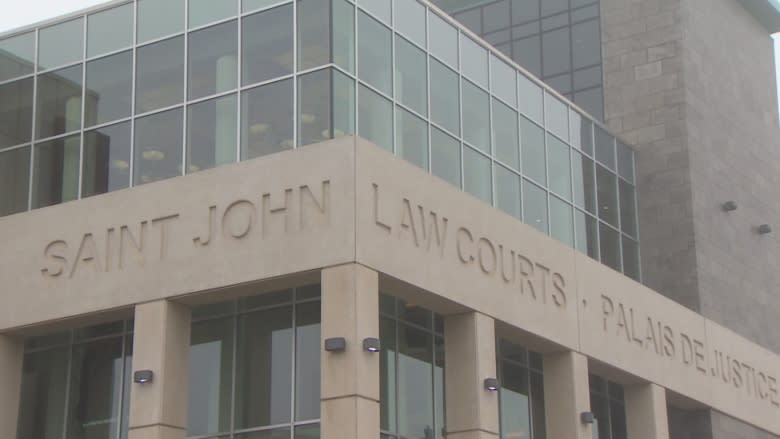Mentally ill offenders get court program back in Saint John
The return of a specialized docket at the Saint John courthouse will go a long way to helping people who have landed in court because of mental health issues, say lawyers and other experts on New Brunswick's criminal justice system.
The provincial government announced Monday that it is restoring a mental health docket program that was suspended in 2013 after the judge who oversaw it retired.
The program helps create a treatment plan for offenders suffering from a mental illness, rather than putting them through the regular court system.
Veteran criminal lawyer David Lutz, who has represented clients who went through the former program, said it is sorely needed.
In his experience with clients who are mentally ill, their criminality was simply an extension of their mental health issues, he said.
"They were in need of guidance, as opposed to prison or other sanctions," Lutz said.
"What I found the court did is that it looked at the offender and set out to find a way to prevent them from reoffending by treating their mental health issues."
Addressing offenders' mental health, instead of penalizing them through the court system, is probably less expensive and more beneficial to the community in the long run, he said.
"When people come in with all these issues that most of us don't have, the court is a sledgehammer where a cushion would have worked better," he said.
Courts not for seriously ill
Most people who are mentally ill often don't understand why they've ended up in the criminal justice system to begin with, he said.
Martin Fineberg, another longtime criminal lawyer in Saint John, said he believes anyone with a serious mental illness should not go through the regular court system.
"Too many times you see people who, it's obvious to the lawyers, that it's a mental health issue that shouldn't be dealt with in criminal court," he said.
"I don't know a criminal lawyer who hasn't had that thought run through their mind in their career."
Mary Ann Campbell, the director of the Centre for Criminal Justice Studies at University of New Brunswick, has conducted two studies on the specialized program.
Her research, which followed participants for many years, found that those who completed the program typically had a lower rate of reoffending.
"We know that the program has the ability to really change the things that drive the criminal behaviour," she said.
"It makes them more stable in their life, in terms of having their needs met."
Judge hopes program will expand
The province has not said who will supervise the Saint John court program when it comes back.
In 2009, a task force on improving mental health service recommended the provincial government set up more mental health courts in New Brunswick as way of reducing the high number of mentally ill people in jail.
That task force was led by then-provincial court judge Michael McKee.
McKee praised the return of a mental health docket to Saint John but said he hopes the province will eventually expand it.
"Now, true, I think it's pretty obvious that there will be an initial cost to introduce it provincewide, but I think that with time the benefits and advantages would far outweigh the initial costs," he said.
"The results in Saint John speak for themselves. Eighty-five per cent or more of people who went through it have not returned to the court system. Which is quite substantial, and a good indication that treatment is a lot more effective than jail."
A provincial government spokeswoman said it's too early to determine if and when other judicial districts will have access to the program.
"The focus at this time is to establish the model in Saint John, where the program existed before, and there is a great need," said Geneviève Mallet-Chiasson, a communications officer with the Department of Justice and Public Safety.



